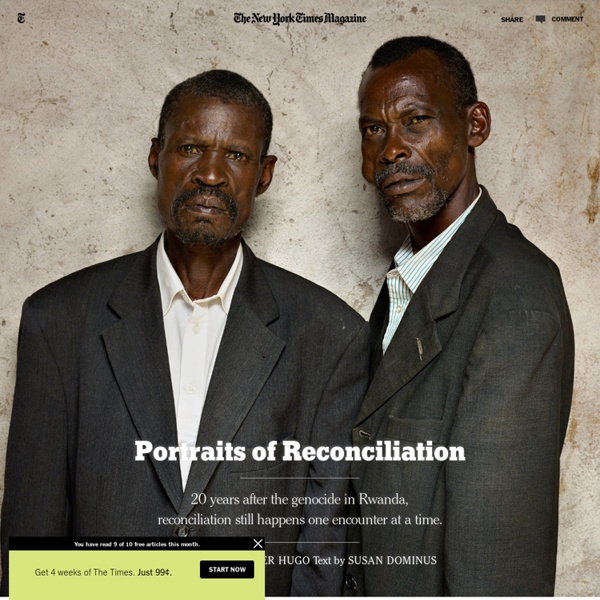Portraits of Reconciliation

Page Président - 10 moments d'Histoire bizarres
10 moments d'Histoire bizarres Vendredi, 28 Février 2014 Anie Edison Taylor, la première personne a avoir descendu les chutes du Niagara en tonneau et survécu (1901). Test de nouveaux gilets pare-balles (1923). Des mannequins en maillot de bain lors d'un défilé (1923). "Cage à bébé" destinée à donner air et espace aux nouveaux-nés dans les appartements (Londres, 1937). De l'alcool est déversé par les fenêtres durant la Prohibition à Détroit (1929). Un distributeur automatique d'auto-bronzant (1949). Une mère et son fils regardent un essai nucléaire (Las Vegas, 1953). Ronald McDonald en 1963. Un directeur d'hôtel verse de l'acide dans une piscine pour en chasser des Noirs (Californie, 1964). Le premier jour de traffic en Suède après la décision de conduire à droite et non plus à gauche (1967). (source)
P Series: Instant + Cool | VSCO GRID | VSCO Journal
Available in the VSCO Cam in-app store, the P Series: Instant + Cool pack has an instant film appeal with emboldening cool and faded tones. P4, P5, and P6 afford alluring blue and cool tones for a variety of situations. Within the VSCO Cam app, click on the store link and look for the P Series: Instant + Cool pack, available for 99 cents. The P Series: Instant + Cool pack is also included in the Bundle pack, which offers an additional 38 Presets to the 10 provided Presets for only $5.99. Here are some sample images, taken with an iPhone and processed with P4, P5, or P6 in VSCO Cam. If you have any questions or concerns, please visit our support page.
Related:
Related:



